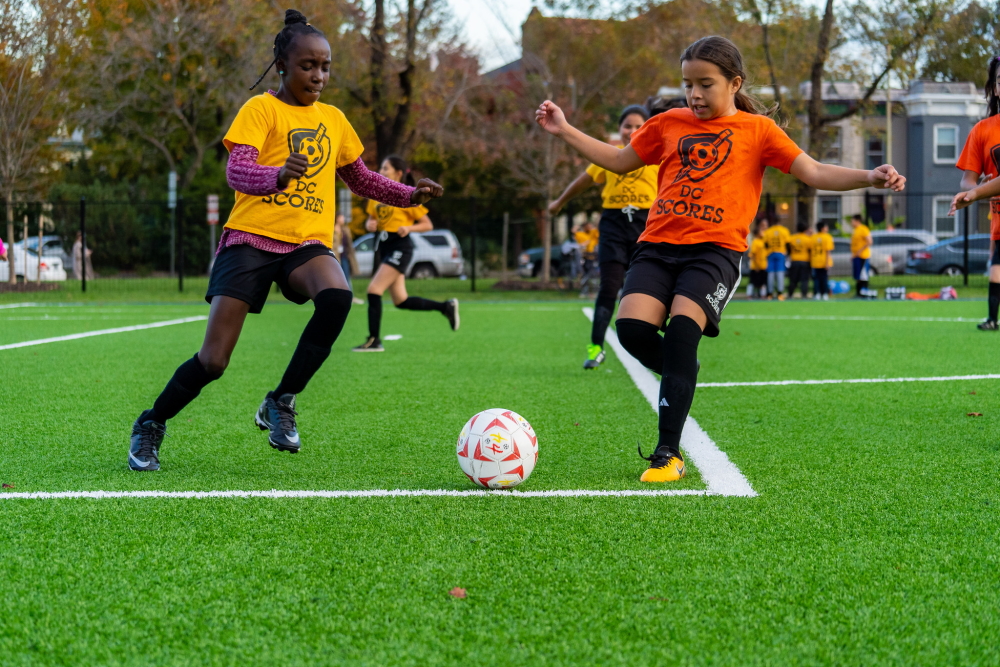
DC Sports
Kids in DC Scores, which runs a public soccer league in Washington, D.C., also take part in service learning and write and perform poetry. The nonprofit organization, an affiliate of America Scores, creates neighborhood teams that help kids develop confidence and life skills.
Sports programs serving low-income communities have seen a big drop in youth participation because of the pandemic, according to a survey of youth sports nonprofits.
The Youth Sports Collaborative Network, which commissioned the survey, found that 84% of 146,000 youth registered in programs in March 2020 were no longer regularly participating in September.
The network is a member organization representing nonprofits that use sports or fitness activities as a youth development tool.
“When the pandemic shut in-person events, 71% of [the surveyed nonprofits] put together virtual programs to be able to keep in touch with their kids to support them,” said Rob Smith, executive director of the Youth Sports Collaborative Network. But the lack of in-person interaction was really devastating to participation in the sports programs, he said.
Kids in poorer families are already less likely to play sports, according to research from the Aspen Institute published in 2019. As a result they miss out on the physical health benefits, as well as a host of other positive factors, including opportunities for teamwork and adult mentoring, according to the research.
Smith said that travel teams and other pay-to-play youth sports did open up for play over the summer, but they serve families who can pay for them. The schools and local park facilities used by nonprofit sports programs were closed or had limited access during summer 2020, he said.
“There’s a lot of concern about when the schools come back what will be the situation particularly for low-income kids,” he said. “Virtual learning has worked less effectively for that community than the more economically well off.
“These kinds of programs should be part of the educational process,” he said.
The 82 nonprofits surveyed offer sports ranging from soccer, basketball and running to golf, tennis or general fitness activities. But they also focus on positive learning and life skill development through mentoring, civic engagement activities and academic support.
For example, America Scores runs free after-school soccer and poetry programs in schools in 12 cities, and Harlem Lacrosse recruits kids in urban schools who are at risk of dropping out and provides wrap-around academic support, mentoring and leadership training.
Most of the organizations responding to the survey expected to be able to continue operations in 2021.
To Smith, the big question is whether school systems and local government will see the programs as a valuable tool in helping kids regroup after the pandemic.





























